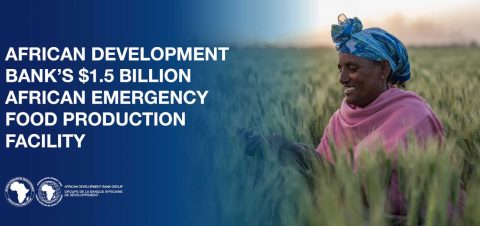AfDB Approves $1.5b Grant To Help Africa Tackle Food Crisis
African News, Latest Headlines, News Around Africa Saturday, May 21st, 2022
(AFRICAN EXAMINER) – African Development Bank (AfDB) has approved a $1.5 billion facility to help African countries avert a looming food crisis.
The approval of the AfDB’s $1.5 billion African Emergency Food Production Facility by the Board of the Bank on Friday, is an unprecedented comprehensive initiative to support smallholder farmers in filling the food shortfall.
With the disruption of food supplies arising from the Russia-Ukraine war, Africa now faces a shortage of at least 30 million metric tons of food, especially wheat, maize, and soybeans imported from both countries.
Many African countries have already seen price hikes in bread and other food items. If this deficit is not made up, food production in Africa will decline by at least 20 percent and the continent could lose over $11 billion in food production value.
Moreover, the price of wheat has soared in Africa by over 45 percent since the war in Ukraine began. Fertilizer prices have gone up by 300 percent, and the continent faces a fertilizer shortage of 2 million metric tons.
Against this backdrop, African farmers urgently need high-quality seeds and inputs before the planting season begins in May to immediately boost food supplies
The Bank’s $1.5 billion strategy will lead to the production of 11 million tons of wheat; 18 million tons of maize; 6 million tons of rice; and 2.5 million tons of soybeans.
The loan will provide 20 million African smallholder farmers with certified seeds. It will increase access to agricultural fertilizers and enable them to rapidly produce 38 million tons of food. This would be a $12 billion increase in food production in just two years.
In addition, it will provide fertilizer to smallholder farmers across Africa over the next four farming seasons, using its convening influence with major fertilizer manufacturers, loan guarantees, and other financial instruments.
The Facility will also create a platform to advocate for critical policy reforms to solve the structural issues that impede farmers from receiving modern inputs.
This includes strengthening national institutions overseeing input markets.
It has a structure for working with multilateral development partners. This will ensure rapid alignment and implementation, enhanced reach, and effective impact.
It will increase technical preparedness and responsiveness.
In addition, it includes short, medium, and long-term measures to address both the urgent food crisis and the long-term sustainability and resilience of Africa’s food systems.
Interestingly, the African Emergency Food Production Facility has benefited from stakeholder consultations, including those with fertilizer producers and separately with African Union (AU) agriculture and finance ministers earlier this month.
The ministers agreed to implement reforms to address the systemic hurdles that prevent modern input markets from performing effectively.
AfDB’s President, Dr. Akinwumi Adesina said food aid cannot feed Africa, adding the continent does not need bowls in hand.
“Africa needs seeds in the ground, and mechanical harvesters to harvest bountiful food produced locally. Africa will feed itself with pride for there is no dignity in begging for food”, he said.
Over the past three years, the Bank’s Technologies for African Agricultural Transformation initiative has delivered heat-tolerant wheat varieties to 1.8 million farmers in seven countries, increasing wheat production by 2.7 million metric tons.
The Bank’s Vice President for Agriculture, Human and Social Development, Dr. Beth Dunford said the Africa Emergency Food Production Facility builds on lessons learned from the AfDB’s Feed Africa Response to Covid-19 programme.
“That programme has provided a strategic roadmap to support Africa’s agriculture sector and safeguard food security against the pandemic’s impact”, he added.
In April, UN Secretary-General António Guterres appointed Adesina to a select Steering Committee of the Global Crisis Response Group.
The U.S. Senate Appropriations Subcommittee on State and Foreign Operations recently invited Adesina to make a presentation about the African Emergency Food Production Facility.
Related Posts
Short URL: https://www.africanexaminer.com/?p=77073






















